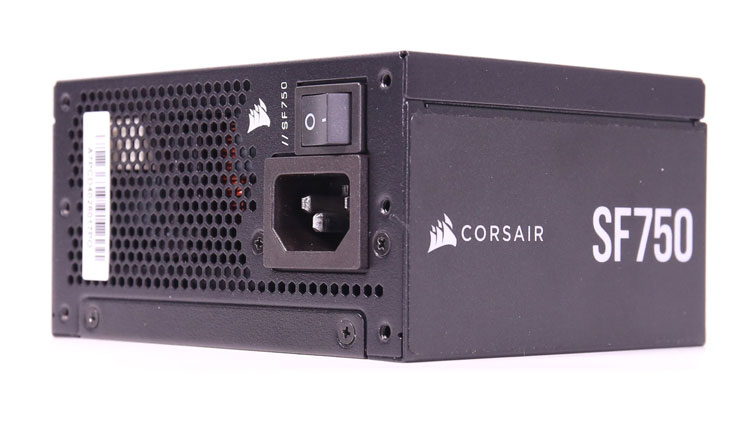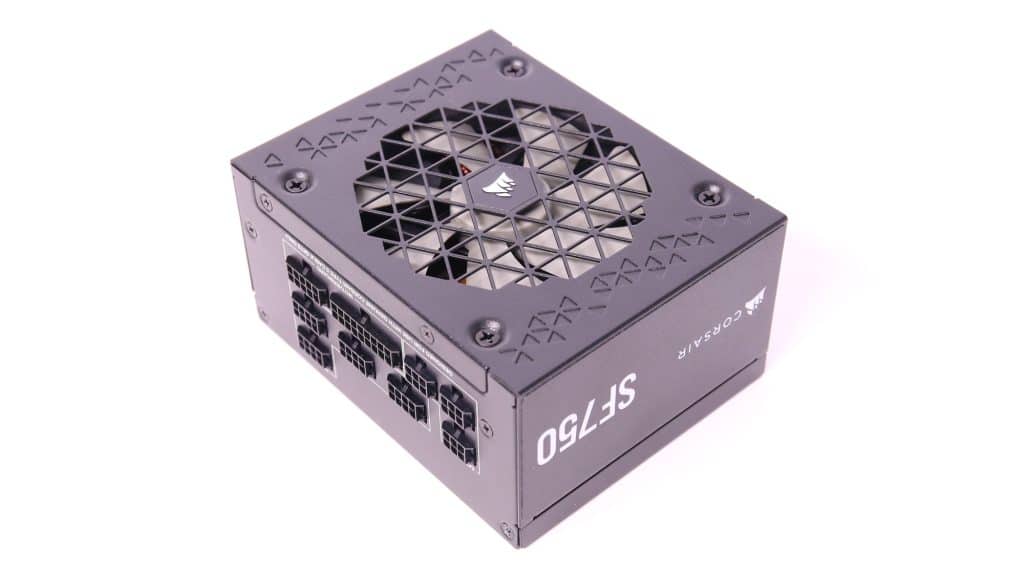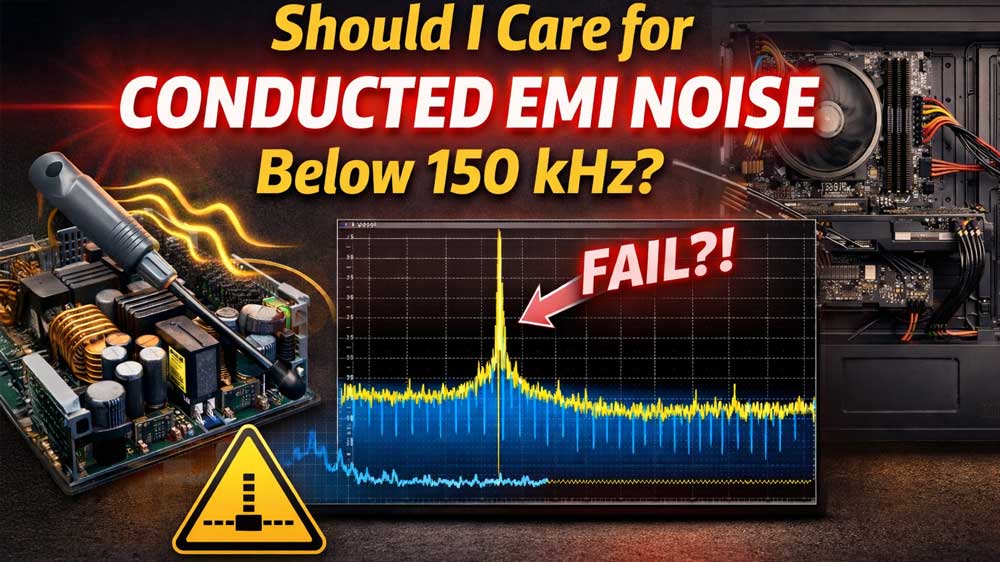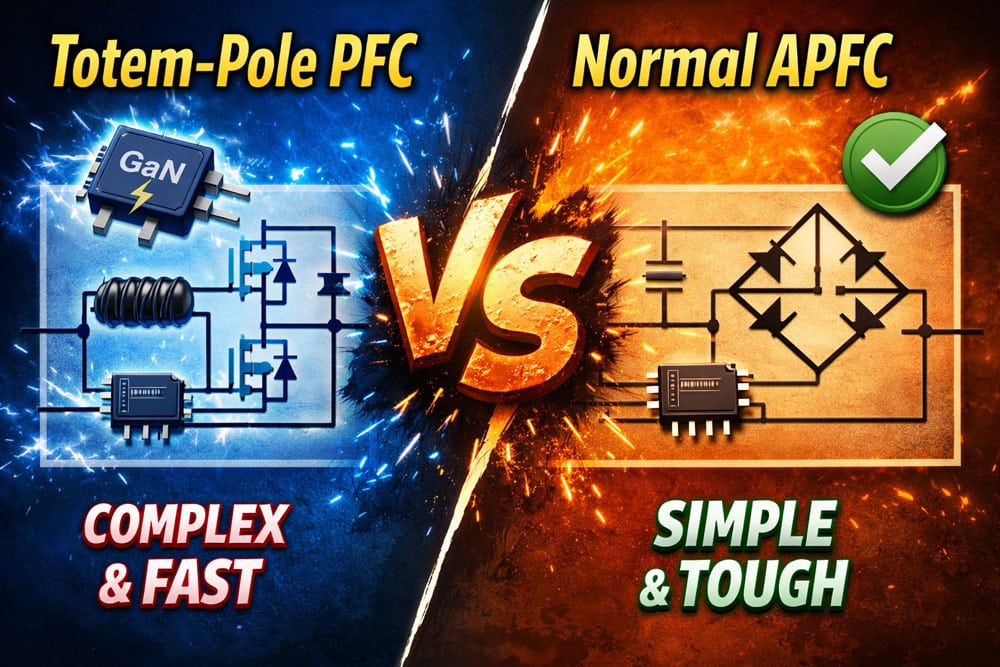Epilogue
With this review, I finish evaluating Corsair’s new SF series of SFX PSUs made by Great Wall, a Chinese manufacturer and one of the largest ones. Corsair didn’t rush out to release these products in the shortest possible period but took its time till performance and operation noise were at the expected levels. How do I know that? I have good sources. If you need increased power levels and don’t mind the increased noise at full load, you will go for the SF1000. If you want a more balanced solution, the SF850 is the ideal choice, while if your power needs are not increased but you still want something that can cope with up to 1500W power spikes, the SF750 fits the bill.
Since we are talking about SFX products, I should emphasize that you should not take the ATX standards for comparison purposes. Some discussions on Reddit have come to my attention concerning the over 30 dBA average noise output of the SF1000. When a tiny SFX platform, whose modular connectors do not protrude from the chassis to save space, which is cheating in my book, has to deliver 1000W of load, you should not expect it to remain silent and, at the same time, reliable. Only if it achieved >95% average efficiency, hence it was Diamond in the Cybenetics scale, and its thermal loads were minimal, should a highly relaxed fan speed profile be acceptable and wouldn’t jeopardize the product’s reliability through time. Even with Cybenetics Diamond efficiency, a level that no manufacturer has achieved yet, the operating conditions would significantly affect the average noise output. Lastly, when the PSU has to deliver 1000W of power, the CPU and GPU cooling systems will have a tough time coping with the thermal loads, which will most likely produce more noise than the PSU’s fan. So we must be careful and, above all, realistic regarding hardware demands. Suppose I ask for lower and lower noise output without considering the engineering limits. In that case, most PSUs will likely fail because of the increased operating temperatures.
As I wrote in the other SF model reviews, I don’t have any price information yet from Corsair, but I hope they are realistically prized so more users can benefit from their increased performance levels.
With the new SF series, Corsair marks its independence from the so-far powerful 80 PLUS, which insists on increasing its fees while using a vastly outdated and easy-to-cheat methodology. According to Corsair’s PSU PM, only the Cybenetics ratings will be utilized from now on. These ratings use the average efficiency and noise readings from at least 1450 different load combinations, from minimal to full load, and other data to tax the PSUs to the corresponding efficiency and noise categories.
Before investing in a new power supply, read my Best ATX v3.x PSUs article to check all alternative PSU offerings. You help me a lot by using my affiliate links, which don’t increase the product’s price. I get a commission from Amazon every time you do it, which can make a difference for me, especially now that I am on my own, working exclusively for my media and not for someone else.
- Delivered full power at 47°C
- High power density
- Top performance
- Silent at light and moderate loads
- Highly efficient
- Sky-high efficiency at 5VSB
- ATX v3.1 and PCIe 5.1 ready
- High build quality
- Excellent transient response at 12V (ATX v3.1 testing)
- Good transient response on all rails (normal loads)
- Tight load regulation
- Low inrush currents
- Conservatively set 12V OCP and OPP
- Low standby power
- Alternative Low Power Mode (ALPM) compatible
- Quality, FDB fan
- Fully modular (individually sleeved cables)
- Enough cables and connectors, including a high-power one (12+2 pin, 600W)
- SFX-to-ATX adapter bracket included on the bundle
- OCP triggering points need to be lower on the minor rails
- The power factor needs boosting at 230V
- Lower than 17ms hold-up time





Hello,
For battery backup do you think it matter if is a Simulated Sine Wave or it need to be True Sine Wave power supply.
Trying to decide which version to get as I don’t understand at what testing data to look to decide.
Thanks
most PSUs I tried don’t have a problem with simulated sine wave as long as you only need the UPS to hold for a small period to shut down your PC.
That good to know.
Is for a 810W I saw that is supposed to run for 10minutes half load and I guess the PC would be using 400-450watts.
So 2-5 minutes to shut it off should be safe then.
Thanks
What do you mean by “Micro Fit” connectors? As I am only seeing mini fit Jr connectors on this psu?
Corsair switched to micro fit connectors on the 2024 SF line. It’s hard to tell from a single photo, but look at how much less space the connectors take up compared to older versions of the SF line.
I do apologise, there’s not much information right now but for clarity, the landing page for the updated sfx psus state as such…
sf750 – 2x pice 8 pin cables
sf850 – 3x pice 8 pin cables
sf1000 – 4x pice 8 pin cables
Can you confirm that the new sf750 actually does include 3x pice 8 pin cables?
This is a concern for me.
It has two 6+2 pin cables, as I have in the cable description table, and one 12+2 pin.
I found that there was a typo in the general specs list, fixed it.
Can confirm my retail unit comes with only 2 x 8(6+2)pin cables, and that cables are singular they don’t have pigtails like the old unit. If you need more than two 8pin for your GPU like for higher end factory overclocked RX 7000 units you need to get SF850.
Personal opinion: even in the old unit those pigtails power generally doesn’t provide good enough power for long term use and also it is generally accepted convention to not using pigtails for powering many pinned GPU. I guess corsair can get a pass not providing pigtails this generation as it will reduce user error and we are moving forward to using new 12V-2×6 standards anyway (side note: these new SF cables are very good and flexible even better than the old generation, this is especially valuable for SFF build with tight cable management restriction)